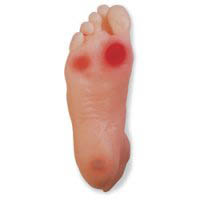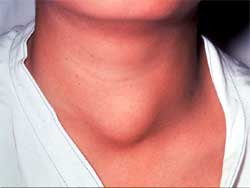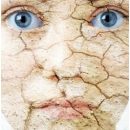What is hypogonadism? What forms of hypogonadism exist? How to diagnose and treatment of hypogonadism? Answers to these questions you will find in the article.
Content
Hypogonadism, forms of hypogonadism
Hypogonadism (Hypogonadismus; Greek. Hypo- + Latelatt. Gonas, Gonadis sex
Iron, from Greek. Gone Birth, Seed + Aden Iron; Synonym:
hypogenitalism, gonadal failure) - pathological condition,
the causes of which are functional failure of the genital
glands and reducing genital hormone products; characterized
underdeveloped internal and outdoor genital organs and fuzzy
The severity of secondary sexual signs.
Distinguish primary
and secondary hypogonadism. Primary hypogonadism occurs with the immediate
lesion gonad that can be genetically determined,
occur in the process of embryogenesis, after infectious infection
Process or injury, as well as to be a consequence of castration,
Hormonian-inactive germ tumors, men - cryptorchism.

Secondary hypogonadism develops as a result of a weak stimulation of genital
gland gonadotropic hormones of the pituitary
their insufficient synthesis due to the destruction of adenogipophysis tumor,
infectious inflammatory process or its traumatic lesion.
In women, one of the most frequent reasons for reducing products
Gonadotropic hormones are necrosis pituitary after massive
Bloodstocks in kind. W
some patients have an innate violation of education
Gonadotropic hormones or corresponding hypothalamic
neurogormones or synthesis of these hormones in the form of biologically inactive
Form. Secondary hypogonadism may occur during acromegaly (Absorbing, due to excessive production of growth hormone), pituitary nine (dwarfism) and others.
The special form of secondary hypogonadism is the so-called hyperprolactinemic hypogonadism, in which excessive production
prolactin hormonally active pituitary tumor or his
hyperplazed cells leads to a violation of the cyclicity of the emission in
Blood gonadotropic hormones.
Depending on the deadlines
the appearance of clinical signs of hypogonadism distinguishes its embryonic,
Apprentice and postpubertate forms. In embryonic forms of hypogonadism
There is either no absence (agnesia) or incorrect formation
(disgenesis) gonad, in men - cryptorchism. For apprentice forms of hypogonadism
Characteristically underdevelopment of the genital organs, the presence of fuzzy pronounced
secondary sexual signs or their absence, eornchoidism,
expressed by a combination of underdevelopment of genital organs, almost complete
lack of secondary sexual signs with disproportionate
the physique (long limbs with a relatively short torso) and
Often - with obesity in girls with hypogonadism that developed in the apparent
periods no menstruation. Patients with apprentice forms of hypogonadism
Different with so-called sex infantilism, they have infantile
appearance and look much younger than their years. With postpubertata
Forms of hypogonadism in men note the disappearance of secondary sexual signs,
Development of impotence, in women - termination of menstruation,
Progressive atrophy of internal and external genital organs.
Hypogonadism
Often accompanied by protein and fat exchange disorders -
obesity or cachexia (extreme degree
exhaustion), cardiovascular disorders. Changes
bone-articular system. Primary hypogonadism developed in early childhood
age leads to mental infantilism), secondary hypogonadism often
accompanied by mental disorders.
Diagnosis and treatment of hypogonadism
The diagnosis is set on the basis of signs,
testifying to underdevelopment of outdoor and internal genital organs,
Non-expressed secondary genital signs or their absence,
results of cytogenetic (determination of karyotype and sex
Chromatina) and X-ray (definition of the state of the Turkish saddle
and degree of skeleton ossification) research. Primary hypogonadism
Differentiate with secondary hypogonadism in the content of gonadotropic hormones in
Serum. Increasing the secretion of sex hormones after injection
Chorionic gonadotropin also indicates secondary hypogonadism. As a result
Reducing the hormonproductive pituitary activity in some patients
With secondary hypogonadism reduced the function of the thyroid gland and the bark of the adrenal glands.
Treatment of hypogonadism is usually beginning in specialized clinics and then continue
Ambulatory, under the supervision of endocrinologist, urologist, gynecologist. IN
The ratio of primary hypogonadism is the treatment consists in substitution therapy
Human hormones. With secondary hypogonadism, drugs are injected with patients
gonadotropic hormones (if necessary - in combination with sex
hormones). Preparations and their doses are selected individually.
Systematic treatment promotes the development of secondary sex
Signs, women appear menstruation, men are partially
Potency is restored, severity of phenomena decreases,
concomitant hypogonadism (osteoporosis, lagging in the formation
Skeleton and other.).
Operational treatment includes transplantation
Eggs or ovary, reeling eggs with cryptorchism, plastic
Correction of underdeveloped penis (phallaloplasty). With cosmetic
The purpose of the implantation of the synthetic egg (in the absence of
Abdominal cavity unforeptant eggs). Listed operations for
objective readings and relevant technical capabilities,
including the use of microsurgical equipment and control
immunological and hormonal status of the patient and transplanted
organ, practically do not have contraindications. Allotransplantation
ovary in the clinical practice of treatment of hypogonadism is rarely applied and not yet
It has a definitive assessment. Eggs use eggs for transplantation,
Taken from the corpses of people who died at the age of 17-20. Best
The result was obtained during an egg transflection with an anastomosis between it
vessels and lower left artery and veins; Egg transplant
Place under the skin of the front abdominal wall or in the scrotum. Resistant
Restoration of hormonal homeostasis after this operation is traced
For 5-10 years, however, the reproductive function in patients
It was not possible to restore. Possible complication may be thrombosis
Vascular anastomoses or trapplant rejection.









